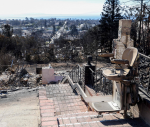You are here
Iran says it foiled sabotage attempt on Arak reactor
By Reuters - Mar 17,2014 - Last updated at Mar 17,2014
DUBAI — Pumps at Iran’s planned Arak reactor, seen by the West as a potential source of plutonium for nuclear bombs, were tampered with in a failed attempt to sabotage the country’s nuclear programme, a senior official said on Monday.
Asghar Zarean, deputy chief for nuclear protection and security at the Atomic Energy Organisation of Iran, said the incident was one of several such attacks foiled over the past few months, the official IRNA news agency reported.
He did not name the targets of the other alleged attacks or who might have been behind them, according to IRNA.
Iran has in the past often accused its Western and Israeli foes of seeking to sabotage its nuclear programme, which Tehran says is peaceful but the United States and its allies fear may be aimed at developing a nuclear weapons capability. It has also accused its enemies of assassinating Iranian nuclear scientists.
But this was believed to be the first time Iran has made sabotage suspicions public since a major thaw in ties with the West after a relative moderate, Hassan Rouhani, was elected president last June on a platform to ease Tehran’s isolation.
“Intelligence inspections of the nuclear facilities indicated that some pumps ... of Arak’s IR-40 project had been mechanically manipulated in an effort to disrupt the routine work of the power plant,” Zarean said.
He gave no further details. A report by the UN nuclear watchdog in November last year said a number of major components had yet to be installed at the plant, including reactor cooling pumps. It was not immediately clear whether Zarean was referring to another type of pumps.
Arak disputed at talks
The fate of Arak was a big sticking point in talks between Iran and six world powers last year that led to a landmark interim agreement to curb Iran’s nuclear programme in exchange for some easing of sanctions.
Under the accord that took effect on January 20, Iran pledged to not install any additional reactor components or produce fuel for the plant during the six-month duration of the deal.
The powers — the United States, France, Germany, Britain, China and Russia — and Iran are to meet again in Vienna on Tuesday to try to build on the interim accord and reach a final settlement by late July of the decade-old dispute over the Islamic republic’s atomic activities.
Zarean first announced the foiling of the Arak incident on Saturday when he unveiled a new lab to combat cyber attacks, but without giving any details at the time. The lab was launched to identify, prevent and fight threats including modern software viruses, he said in a statement over the weekend.
Iran’s nuclear facilities have previously been subject to an attack by a computer virus known as Stuxnet, which is widely believed to have been developed by the United States and Israel, though no government has taken responsibility for it.
The virus was discovered in 2010 after it was used to impair a uranium enrichment facility at Iran’s Natanz facility. It was the first publicly known example of a virus being used to attack industrial machinery.
Iran has long denied accusations from Israel and Western powers that it has sought to develop the means to produce atomic weapons under cover of a civilian nuclear energy programme.
Related Articles
Iranian authorities have prevented attempted sabotage at the country’s heavy water nuclear reactor, a senior official said Saturday without giving specifics as to the nature of the attempted disruption or its suspected initiator.
Iran has foiled an attempt to sabotage tanks used for transporting heavy water, which is needed to run some nuclear reactors, and blames a "foreign country" for the incident, a senior official was quoted by local media as saying.
Iranian security services have arrested several suspected spies in the southern province of Bushehr where the country's first nuclear power plant is located, the semi-official Fars news agency reported on Tuesday.
















